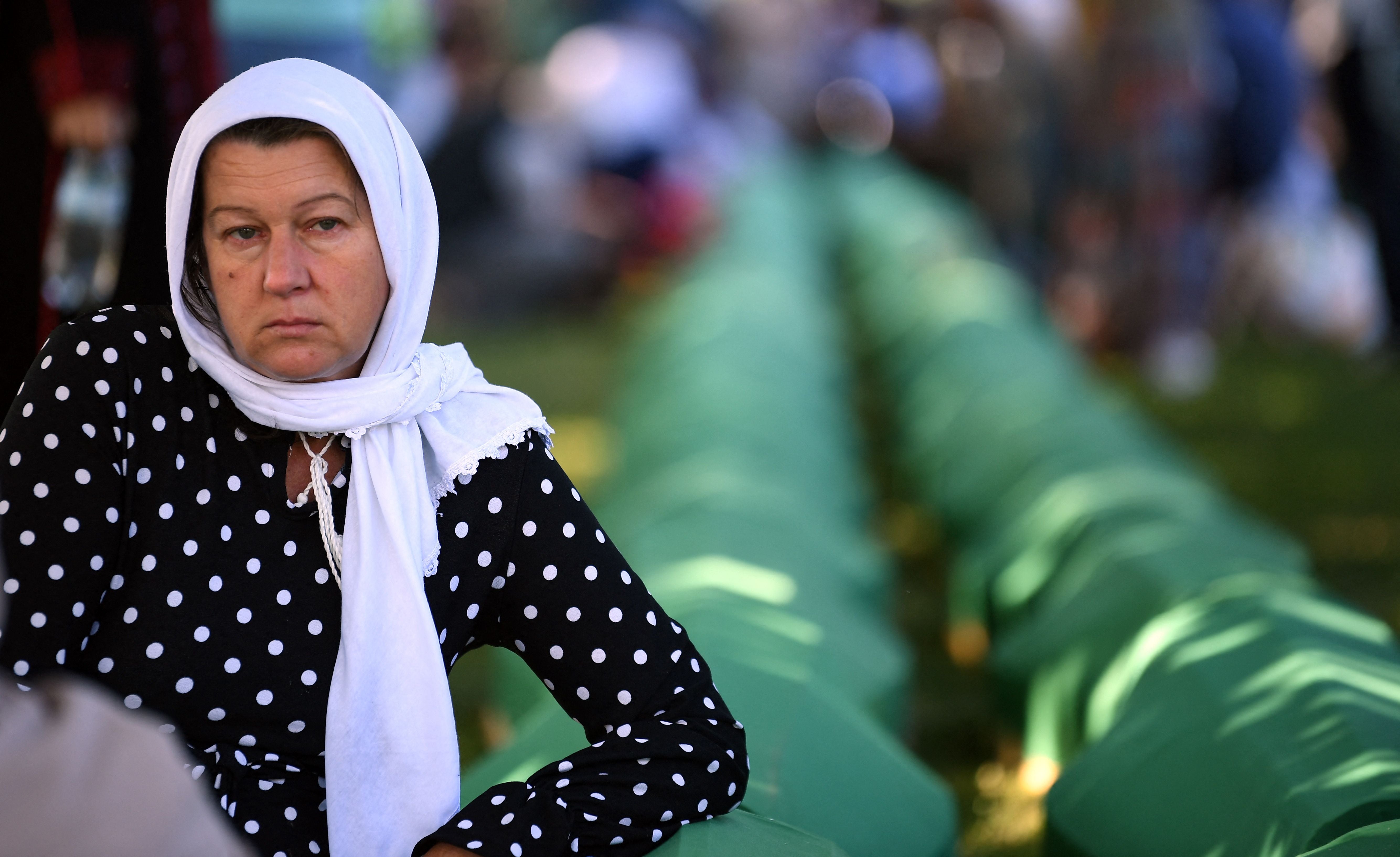Dutch government offers ‘deepest apologies’ over Srebrenica massacre role
‘The events of 1995 led to deep human suffering that is palpable here to this day,’ says the Netherlands’ defence minister

The Netherlands has offered its “deepest apologies” for the role played by Dutch peacekeepers in the Srebrenica genocide, when roughly 8,000 Bosnian Muslims were massacred 27 years ago.
It is the first time the Dutch government has apologised to the relatives of the victims.
Outgunned and outnumbered, Dutch peacekeepers were unable to prevent Bosnian Serb forces from overrunning the UN-declared “safe haven” at the tail end of the Balkan wars of the 1990s.
During a week of bloodletting in July 1995, men and boys were separated from the women and taken to execution sites where they were massacred. Their bodies were dumped in mass graves.
“Only one party is to blame for the horrific genocide; the Bosnian Serb army. But let me be clear. The international community failed to offer adequate protection to the people of Srebrenica and, as part of that community, the Dutch government shares responsibility for the situation in which that failure occurred. And for this we offer our deepest apologies,” Dutch defence minister Kajsa Ollongren said, putting her hand to her heart.
Dutch courts had already determined that the Netherlands was partly responsible for the fall of Srebrenica and compensation was paid to survivors.
The Dutch government resigned over the episode in 2002, with the then prime minister Wim Kok saying the government in that way accepted its responsibility for the massacre but not the blame. Relatives did not deem this enough and have been pushing for an apology for years.
Last month the Netherlands apologised to the Dutch UN soldiers present at the massacre for the conditions under which they had to do their work, sparking anger from the relatives of the victims.
“The events of 1995 led to deep human suffering that is palpable here to this day. We cannot relieve you of this suffering. But what we can do is to look history straight in the eye,” said Ms Ollongren during a visit to Bosnia to commemorate the genocide.
The slaughter, judged an act of genocide by the International Criminal Tribunal for the Former Yugoslavia, was the worst single atrocity of the 1992-95 Bosnian war, in which about 100,000 people died.
Subscribe to Independent Premium to bookmark this article
Want to bookmark your favourite articles and stories to read or reference later? Start your Independent Premium subscription today.

Join our commenting forum
Join thought-provoking conversations, follow other Independent readers and see their replies